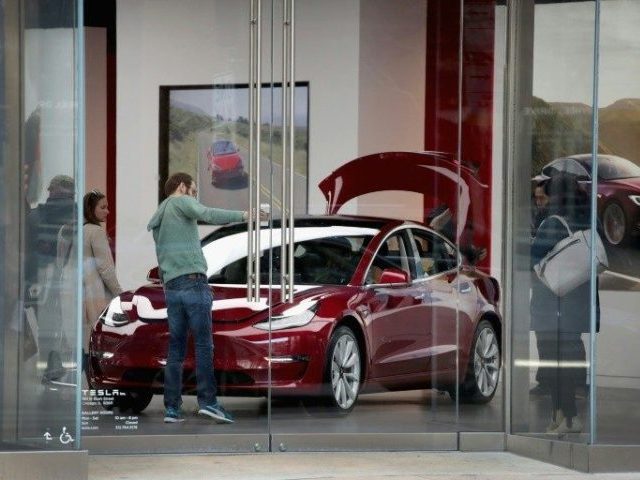The left-wing media doesn’t discuss it, but the automobile industry is reporting that as the Biden administration ramps up its push for more electric vehicles, the supply chain necessary to produce them is riddled with human rights abusing nations.
The supply chain also includes countries that violate good environmental practices as electric vehicles are touted as the answer to saving the planet.
The Automotive News website put the pieces together:
The Democratic Republic of Congo supplies about 70 percent of the world’s cobalt, a key material for today’s EV batteries. But according to Wilson Center, a U.S. public policy think tank, cobalt mines in Congo rely on about 40,000 children — some as young as 6 years old — or about 16 percent of the 255,000 people who work in the mines. Workers are often paid less than $2 per day.
Meanwhile, China is responsible for 90 percent of global rare-earth element supply and is instrumental in processing raw materials for EV batteries around the world. But the country has been under fire for its environmental practices, as evidenced by an artificial, toxic lake in Inner Mongolia made of black sludge and hazardous chemicals that result from rare- earth mining.
Human rights and environmental abuses in the supply chain are likely to come under greater scrutiny in the coming years as the demand for batteries increases. Automakers plan to roll out dozens of new electric models between now and the end of the decade.
There are ways to address these issues in the supply chain, according to Abigail Wulf, director of the Center for Critical Minerals Strategy, an advocate for “clean energy” in the U.S.
That includes increasing domestic mining and processing capabilities and putting pressure on other countries to clean up their practices.
“The main thing is instituting a level of radical transparency within our supply chains,” Wulf said. “We want to work with our allies to try to create, whether it’s a new trade deal or trade agreement … to commit to sourcing things that adhere to high standards.”
“And we want to use traceability frameworks, whether it’s blockchain or something else, to prove that things actually do adhere to these standards throughout the entire supply chain,” Wulf said.
The trade magazine reported that some automakers and suppliers are addressing labor and environmental issues, including BMW, which in 2018 began working with a U.K. startup to use blockchain technology to ensure its electric vehicles used only “clean cobalt” and not materials mined with child labor, according to a Reuters report.
Tesla, the world’s largest electric vehicle manufacturer, has begun to use cobalt-free lithium-iron-phosphate batteries in many of its vehicles, and Ford and Volkswagen have said they want to follow suit.
“In addition to ethical reasons to move away from cobalt, auto companies see financial incentives,” the website reported. “Most of the world’s cobalt is processed in China, where trade tension with the U.S. remains high.”
Biden and the Democrats’ so-called infrastructure bill includes provisions to increase domestic battery production and money for a “domestic rare- earth demonstration facility, which would extract and refine the materials.”
Wulf called those provisions “baby steps.”
“We need these baby steps to build up some of our capacity in the first place and then hopefully keep it going,” she said.
Follow Penny Starr on Twitter

COMMENTS
Please let us know if you're having issues with commenting.